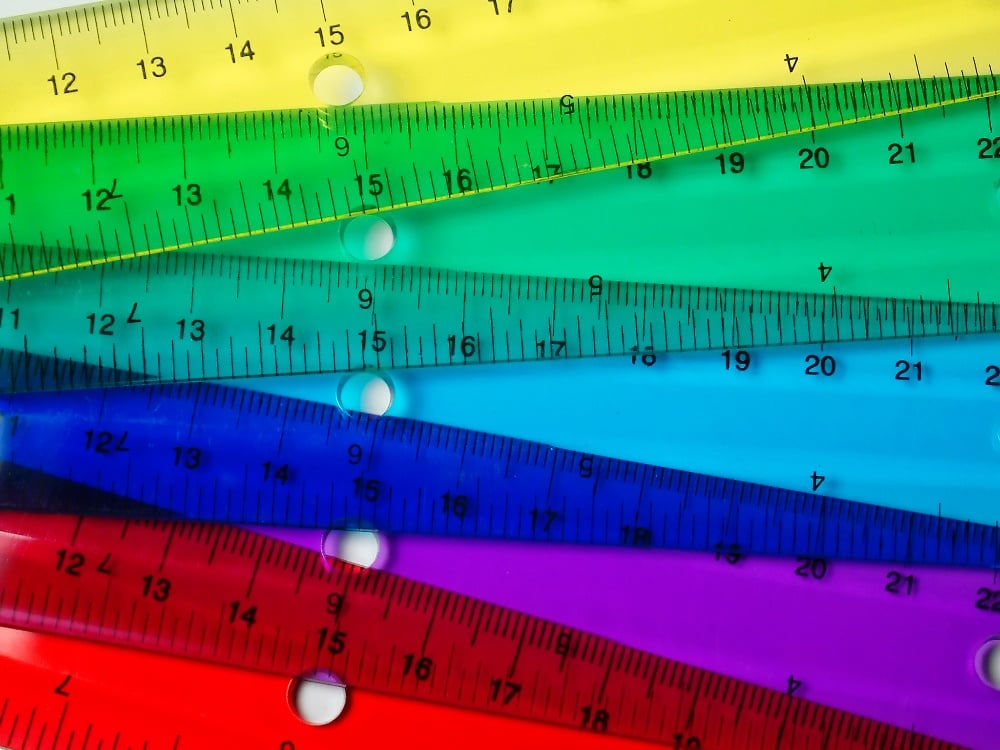
A long time ago in a classroom far, far away, there was a student who we will call Raven. Quirky, inquisitive, well-liked, smart, well-behaved…in other words, the kind of student any teacher would love to have. Raven eventually grew up and went on to do good things, like you want all your students to do. Raven and I fortunately found each other on social media a few years ago and we were both delighted to be reunited after so many years. Last week on social media, Raven talked a bit about how she thought it was interesting that masks couldn’t be required in schools, but that dress codes could be enforced. She then went on to talk about a time when she was in the grade that I had taught her, and how she was embarrassed because she had been sent to the office because her shirt strap was 2.5 inches wide instead of 3.
And my world came to a grinding, screeching halt. You see, I was that teacher, and I knew it. Rule stickler that I was, I could see that scenario playing out again before my eyes. I confirmed with her that it was indeed me, and to her credit, Raven hadn’t held that against me all these years. She might not care, but I greatly regret that I was the source of that memory.
I think every last one of us as educators live in fear of putting that kind of a mark on a student. And when we realize that it has happened, I think it shakes us to our very core and we have to somehow put ourselves back together and try to become a better teacher from the experience. Every teacher fears it, and kudos to you that have made it through without having stepped down that road.
When you think about the past, which is easier for you to recall? The good times? Or the times where you got into trouble or things went horribly wrong? For me, it is harder to remember the good times although I know that they are there. I can still remember getting lectured in 1st grade because I had not done my reading homework the night before – we moved from one house to the next door one, and I carried over kitchen stuff for hours that night, but my teacher didn’t believe me. When I was in 7th grade, I recall being taken out in the hall and being lectured by the teacher because of my exasperated response to a question. And then there was a time when I got in a fight in high school. It was a misunderstanding, but it happened. The principal didn’t show me justice, though. He showed me grace. I was still suspended for three days, but the way he handled it made all the difference in the world.
But this blog is supposed to be about assessment! What has that got to do with these rather icky reflective thoughts? Let me tell you what it has to do with icky thoughts. Assessment is just another way of saying that we are measuring something, right? What if I had approached the scenario with Raven differently? Instead of looking to see where her shirt strap was too narrow, what if I had focused on where things could be stretched? What if I had looked for opportunities for growth instead of pointing out flaws? What if I had understood that the whole point behind that measurement was a flaw? Okay – that last is a bit of a stretch and would have been difficult to do in that particular climate, but it sounded good.
"And if you have one of those middle of the night reflection sessions, a.k.a. nightmares, that makes you wonder just what kind of a teacher you are, then remind yourself that you are the kind of teacher that will get up in the morning and go try to do your best again, just like every other day."
Measurement is a two-edged blade. The very idea behind measurement is to find things that are on one side of a mark and separate them from what is on the other side. That time with Raven, I measured and found that her shirt came up wanting. What if I had applied that same logic to her schoolwork? This paper you turned in didn’t have all the correct answers, so your grade is going to reflect that? Or your presentation didn’t include all the requirements, so it isn’t acceptable? You want me to go on? I won’t. I think you see where I am going.
I had an epiphany one time when I was teaching teachers about how to review data from this formative assessment product that we used in the state. It had this really cool report that would tell you not only who got the answers right and wrong, but who chose what answers. The first time I turned teachers loose on that report, they all looked for who missed what. They were looking for the negatives. I’m standing there looking at this group of teachers who are focused in on the items that students missed and I’m thinking to myself where have we gone wrong as educators? Why aren’t we looking for the areas where things are right? Why are we placing the blame on students for things that they don’t know? And I knew that I had to change my thinking as well as theirs.
I pulled the group back together and we started talking about where the students were getting items right and trying to identify why that might be. And then, we looked at the ones that were wrong and looked for patterns this time. Were there places that had commonalities? I will hold this memory with me forever…. when I started pointing out that every student in a class had missed the same item and they had all chosen the same answer, and the item was correct…. you could have heard a pin drop. The students hadn’t missed the item. The teacher had taught the standard incorrectly. It wasn’t the students at fault. It was the teacher. My teaching changed from that day forward and I hope that all the other teachers I showed how to do this type of reflective analysis changed their teaching, too. You see, it wasn’t looking for the negative. It was trying to capitalize on the positive, and then understand why there is a negative so that it could be addressed.
If I had only learned this in time to have not used that particular measurement on Raven. I didn’t though, and I’ll learn to live with that. And I’ll try to be a better person and educator because of it.
You will, too. You are going to have stuff that happens that you will lay awake at night and think about. Why didn’t I say this? Why didn’t I do this? Why did I ask this? We are human, and part of being human is making mistakes. But we pick ourselves up, and we try to do better as we move on.
This year, the negatives are going to pop up everywhere for you as you use measurement in one way or another. Try to push them to the side. Try to find the positives. Try to find the changes that show growth. Look at that assessment data with an eye to mastery and not what is missing. Give your students – and yourself – grace this year. More than any other, it is needed. And if you have one of those middle of the night reflection sessions, a.k.a. nightmares, that makes you wonder just what kind of a teacher you are, then remind yourself that you are the kind of teacher that will get up in the morning and go try to do your best again, just like every other day. Just like our students, mistakes happen. Find the positives and don't dwell on the negatives.
Who knows? With this determined attitude and a determined focus, this might be your best year yet! I bet your ‘measurements’ will reflect that.
And I promise to talk more about assessment and less about icky reflections next time.





